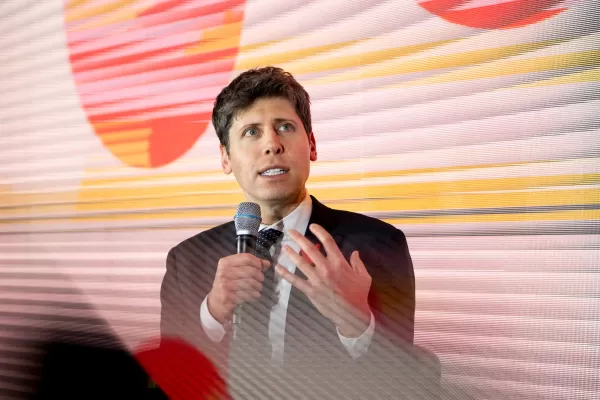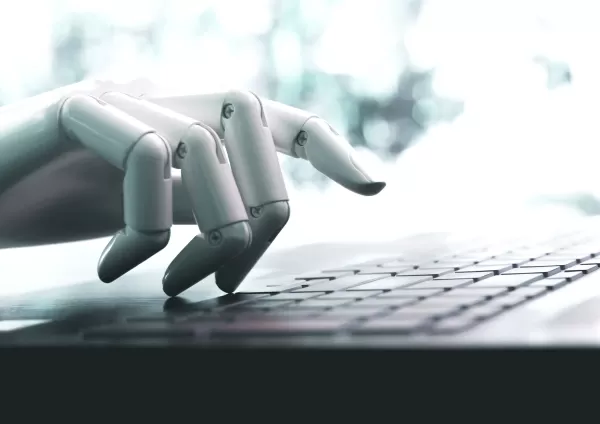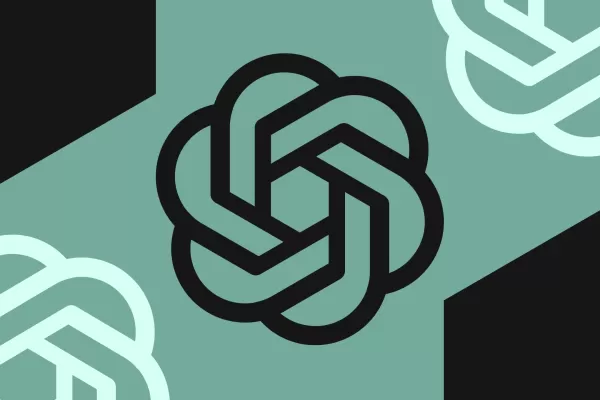Former OpenAI Employees File Brief Against Company’s For-Profit Shift

Former OpenAI Employees Back Elon Musk in Lawsuit Against OpenAI’s Shift to For-Profit Model
A group of former OpenAI employees has filed an amicus brief in support of Elon Musk’s lawsuit against OpenAI, challenging the company’s planned transition from a nonprofit to a for-profit corporation.
The brief, submitted by Harvard law professor Lawrence Lessig (also founder of Creative Commons), includes signatures from 12 ex-OpenAI staffers, including researchers and policy leads such as Gretchen Krueger, Daniel Kokotajlo, and William Saunders. They argue that OpenAI’s restructuring would "fundamentally violate its mission" if the nonprofit relinquishes control over business operations.
Why Are Former Employees Speaking Out?
Several signatories have previously criticized OpenAI’s direction. Krueger has pushed for greater accountability, while Kokotajlo and Saunders warned of OpenAI’s "reckless" pursuit of AI dominance. Wainwright has been openly skeptical, stating that OpenAI "should not be trusted when it promises to do the right thing later."
OpenAI, however, insists its nonprofit mission remains unchanged. A spokesperson told TechCrunch that the company is converting its for-profit arm into a Public Benefit Corporation (PBC)—similar to Anthropic and Musk’s xAI—while keeping its nonprofit intact.
The Legal Battle: Musk vs. OpenAI
Musk’s lawsuit alleges that OpenAI has abandoned its original nonprofit mission of ensuring AI benefits humanity. He sought an injunction to block the restructuring, but a federal judge denied the request, allowing the case to proceed to a jury trial in 2026.
The ex-employees’ brief argues that OpenAI’s current structure—where the nonprofit controls subsidiaries—is essential to its mission. Removing that oversight would "breach the trust" of employees, donors, and stakeholders who believed in OpenAI’s commitments.
OpenAI’s Governance Was a Key Selling Point
According to the brief, OpenAI used its nonprofit governance as a recruitment tool, differentiating itself from competitors like Google and Anthropic. Employees were told that nonprofit oversight ensured safety and societal benefits took priority over profits.
The filing cites a 2020 all-hands meeting where CEO Sam Altman allegedly emphasized that nonprofit control was "paramount" in preventing short-term financial motives from overshadowing AI safety.
Risks of a For-Profit OpenAI
The brief warns that a for-profit OpenAI could:
- Cut corners on AI safety to maximize shareholder returns.
- Abandon its "merge and assist" pledge—a commitment to collaborate with any "value-aligned" project that achieves AGI first.
- Concentrate AI power among a small group of investors rather than distributing benefits broadly.
Growing Opposition to OpenAI’s Restructuring
This isn’t the first pushback against OpenAI’s shift. Earlier this week, nonprofits and labor groups, including the California Teamsters, petitioned the state’s attorney general to intervene, accusing OpenAI of "subverting its charitable mission."
Meanwhile, OpenAI maintains that its nonprofit will gain more resources for healthcare, education, and science initiatives. The nonprofit would reportedly earn billions from its controlling stake in OpenAI’s enterprise.
What’s Next?
With a 2026 trial looming, OpenAI faces mounting scrutiny over its governance. If the restructuring proceeds, it could redefine not just OpenAI’s future—but the broader AI industry’s balance between profit and public good.
For now, the debate continues: Can OpenAI stay true to its mission while chasing commercial success? The answer may shape the future of artificial intelligence.
(Image: OpenAI's logo, representing its dual nonprofit/for-profit structure.)
Follow us for more AI policy updates and breaking tech news.
Related article
 Nonprofit leverages AI agents to boost charity fundraising efforts
While major tech corporations promote AI "agents" as productivity boosters for businesses, one nonprofit organization is demonstrating their potential for social good. Sage Future, a philanthropic research group backed by Open Philanthropy, recently
Nonprofit leverages AI agents to boost charity fundraising efforts
While major tech corporations promote AI "agents" as productivity boosters for businesses, one nonprofit organization is demonstrating their potential for social good. Sage Future, a philanthropic research group backed by Open Philanthropy, recently
 Top AI Labs Warn Humanity Is Losing Grasp on Understanding AI Systems
In an unprecedented show of unity, researchers from OpenAI, Google DeepMind, Anthropic and Meta have set aside competitive differences to issue a collective warning about responsible AI development. Over 40 leading scientists from these typically riv
Top AI Labs Warn Humanity Is Losing Grasp on Understanding AI Systems
In an unprecedented show of unity, researchers from OpenAI, Google DeepMind, Anthropic and Meta have set aside competitive differences to issue a collective warning about responsible AI development. Over 40 leading scientists from these typically riv
 ChatGPT Adds Google Drive and Dropbox Integration for File Access
ChatGPT Enhances Productivity with New Enterprise Features
OpenAI has unveiled two powerful new capabilities transforming ChatGPT into a comprehensive business productivity tool: automated meeting documentation and seamless cloud storage integration
Comments (3)
0/200
ChatGPT Adds Google Drive and Dropbox Integration for File Access
ChatGPT Enhances Productivity with New Enterprise Features
OpenAI has unveiled two powerful new capabilities transforming ChatGPT into a comprehensive business productivity tool: automated meeting documentation and seamless cloud storage integration
Comments (3)
0/200
![ChristopherThomas]() ChristopherThomas
ChristopherThomas
 August 27, 2025 at 8:59:25 AM EDT
August 27, 2025 at 8:59:25 AM EDT
Wow, ex-OpenAI folks backing Musk’s lawsuit is wild! 😲 Non-profit to for-profit shift feels like a betrayal of their original mission. Wonder how this’ll shake up AI ethics debates!


 0
0
![RyanSanchez]() RyanSanchez
RyanSanchez
 August 25, 2025 at 9:01:18 PM EDT
August 25, 2025 at 9:01:18 PM EDT
It's wild to see former OpenAI folks siding with Musk on this! 🤯 I wonder if this lawsuit will shake up the AI world or just fizzle out. Nonprofit to for-profit feels like a big shift—hope it doesn’t mess with their mission.


 0
0
![JerryGonzalez]() JerryGonzalez
JerryGonzalez
 August 23, 2025 at 5:01:16 AM EDT
August 23, 2025 at 5:01:16 AM EDT
Shocking move by OpenAI! Going for-profit feels like a betrayal of their original mission. Curious to see how this lawsuit plays out—anyone else think this could shake up the AI world? 🤔


 0
0

Former OpenAI Employees Back Elon Musk in Lawsuit Against OpenAI’s Shift to For-Profit Model
A group of former OpenAI employees has filed an amicus brief in support of Elon Musk’s lawsuit against OpenAI, challenging the company’s planned transition from a nonprofit to a for-profit corporation.
The brief, submitted by Harvard law professor Lawrence Lessig (also founder of Creative Commons), includes signatures from 12 ex-OpenAI staffers, including researchers and policy leads such as Gretchen Krueger, Daniel Kokotajlo, and William Saunders. They argue that OpenAI’s restructuring would "fundamentally violate its mission" if the nonprofit relinquishes control over business operations.
Why Are Former Employees Speaking Out?
Several signatories have previously criticized OpenAI’s direction. Krueger has pushed for greater accountability, while Kokotajlo and Saunders warned of OpenAI’s "reckless" pursuit of AI dominance. Wainwright has been openly skeptical, stating that OpenAI "should not be trusted when it promises to do the right thing later."
OpenAI, however, insists its nonprofit mission remains unchanged. A spokesperson told TechCrunch that the company is converting its for-profit arm into a Public Benefit Corporation (PBC)—similar to Anthropic and Musk’s xAI—while keeping its nonprofit intact.
The Legal Battle: Musk vs. OpenAI
Musk’s lawsuit alleges that OpenAI has abandoned its original nonprofit mission of ensuring AI benefits humanity. He sought an injunction to block the restructuring, but a federal judge denied the request, allowing the case to proceed to a jury trial in 2026.
The ex-employees’ brief argues that OpenAI’s current structure—where the nonprofit controls subsidiaries—is essential to its mission. Removing that oversight would "breach the trust" of employees, donors, and stakeholders who believed in OpenAI’s commitments.
OpenAI’s Governance Was a Key Selling Point
According to the brief, OpenAI used its nonprofit governance as a recruitment tool, differentiating itself from competitors like Google and Anthropic. Employees were told that nonprofit oversight ensured safety and societal benefits took priority over profits.
The filing cites a 2020 all-hands meeting where CEO Sam Altman allegedly emphasized that nonprofit control was "paramount" in preventing short-term financial motives from overshadowing AI safety.
Risks of a For-Profit OpenAI
The brief warns that a for-profit OpenAI could:
- Cut corners on AI safety to maximize shareholder returns.
- Abandon its "merge and assist" pledge—a commitment to collaborate with any "value-aligned" project that achieves AGI first.
- Concentrate AI power among a small group of investors rather than distributing benefits broadly.
Growing Opposition to OpenAI’s Restructuring
This isn’t the first pushback against OpenAI’s shift. Earlier this week, nonprofits and labor groups, including the California Teamsters, petitioned the state’s attorney general to intervene, accusing OpenAI of "subverting its charitable mission."
Meanwhile, OpenAI maintains that its nonprofit will gain more resources for healthcare, education, and science initiatives. The nonprofit would reportedly earn billions from its controlling stake in OpenAI’s enterprise.
What’s Next?
With a 2026 trial looming, OpenAI faces mounting scrutiny over its governance. If the restructuring proceeds, it could redefine not just OpenAI’s future—but the broader AI industry’s balance between profit and public good.
For now, the debate continues: Can OpenAI stay true to its mission while chasing commercial success? The answer may shape the future of artificial intelligence.
(Image: OpenAI's logo, representing its dual nonprofit/for-profit structure.)
Follow us for more AI policy updates and breaking tech news.
 Nonprofit leverages AI agents to boost charity fundraising efforts
While major tech corporations promote AI "agents" as productivity boosters for businesses, one nonprofit organization is demonstrating their potential for social good. Sage Future, a philanthropic research group backed by Open Philanthropy, recently
Nonprofit leverages AI agents to boost charity fundraising efforts
While major tech corporations promote AI "agents" as productivity boosters for businesses, one nonprofit organization is demonstrating their potential for social good. Sage Future, a philanthropic research group backed by Open Philanthropy, recently
 Top AI Labs Warn Humanity Is Losing Grasp on Understanding AI Systems
In an unprecedented show of unity, researchers from OpenAI, Google DeepMind, Anthropic and Meta have set aside competitive differences to issue a collective warning about responsible AI development. Over 40 leading scientists from these typically riv
Top AI Labs Warn Humanity Is Losing Grasp on Understanding AI Systems
In an unprecedented show of unity, researchers from OpenAI, Google DeepMind, Anthropic and Meta have set aside competitive differences to issue a collective warning about responsible AI development. Over 40 leading scientists from these typically riv
 ChatGPT Adds Google Drive and Dropbox Integration for File Access
ChatGPT Enhances Productivity with New Enterprise Features
OpenAI has unveiled two powerful new capabilities transforming ChatGPT into a comprehensive business productivity tool: automated meeting documentation and seamless cloud storage integration
ChatGPT Adds Google Drive and Dropbox Integration for File Access
ChatGPT Enhances Productivity with New Enterprise Features
OpenAI has unveiled two powerful new capabilities transforming ChatGPT into a comprehensive business productivity tool: automated meeting documentation and seamless cloud storage integration
 August 27, 2025 at 8:59:25 AM EDT
August 27, 2025 at 8:59:25 AM EDT
Wow, ex-OpenAI folks backing Musk’s lawsuit is wild! 😲 Non-profit to for-profit shift feels like a betrayal of their original mission. Wonder how this’ll shake up AI ethics debates!


 0
0
 August 25, 2025 at 9:01:18 PM EDT
August 25, 2025 at 9:01:18 PM EDT
It's wild to see former OpenAI folks siding with Musk on this! 🤯 I wonder if this lawsuit will shake up the AI world or just fizzle out. Nonprofit to for-profit feels like a big shift—hope it doesn’t mess with their mission.


 0
0
 August 23, 2025 at 5:01:16 AM EDT
August 23, 2025 at 5:01:16 AM EDT
Shocking move by OpenAI! Going for-profit feels like a betrayal of their original mission. Curious to see how this lawsuit plays out—anyone else think this could shake up the AI world? 🤔


 0
0





























